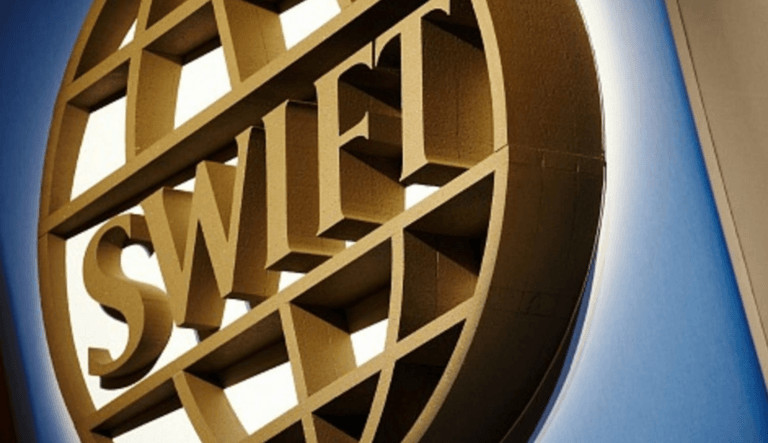The “biggest” and “most overlooked story of 2018,” according to Stacy Herbert of the Keiser Report was the possible development of an alternative to the SWIFT financial messaging system as discussed by members of the German government.
Herbert and her husband Max Keiser together host the Keiser Report on the Russian-government supported news channel Russia Today (RT), and focus on alternative geopolitical and financial views outside what might be termed Western mainstream media. (It bears mentioning that some in Western media have labelled RT as Russian propaganda.)
SWIFT is a private financial messaging service and “part of the world’s financial plumbing” according to the Financial Times, connecting 11,000 financial institutions globally. Connection to SWIFT is therefore vital, and disconnection from it can be ruinous.
CryptoGlobe recently reported that Iran was mostly cut off from SWIFT, with the latter caving to US pressure to block Iranian banks and entities – part of US President Trump’s plan to scrap the Obama-era Iran nuclear deal. In response, Iran has been actively developing an official cryptocurrency tied to its central bank, in an attempt to build financial infrastructure that cannot be blocked.
‘The Biggest Story of 2018’
Spurred by concerns that Trump would nix the Iran deal, German Foreign Minister Heiko Maas proposed during the summer that the EU had to decrease its dependence on US-dominated financial structure – although, ironically, SWIFT is operated by a private, Belgium-based company.
Mass said during the summer that “We must increase Europe’s autonomy and sovereignty in trade, economic and financial policies,” adding to earlier statements in which he declared that “It is high time to re-evaluate our partnership […] Europeans must become a mainstay of the international order.” Germany’s Prime Minister Angela Merkel generally supported her minister’s comments, but stopped short of fully endorsing a scheme to supplement or replace SWIFT.
These issues are close to the heart of cryptocurrency, and indeed, many countries subject to Western sanctions are exploring the use of cryptocurrencies that can transfer value with impunity. Both Venezuela and Russia have been exploring this option.
Max Keiser predicts a move away from current norms of money transfer, and away from the dominance of national central banks, as the freedom of global money transfer begins to break down – what Herbet calls “an acceleration of de-platforming” – into a “fractured […] de-globalized, de-dollarized world.” In this situation, Keiser thinks that the world “will invariably turn to Bitcoin” as a new global reserve currency instead of the dollar.









